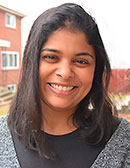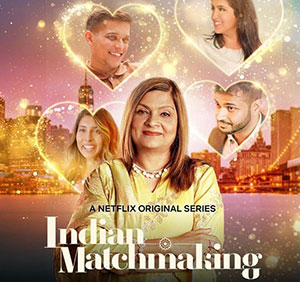
THE BRIDGE TO COLLEGE
My Experience: A Parent Navigating the Admissions Process
We hear it from virtually every parent who contacts us: “I do not understand how college admissions works.” As educational consultants, it is our job to inform our clients about what is going to happen, but few really grasp how challenging the emotions can be.
I asked Kavita, mother of Harsh Bagdy (who will be attending the world’s No. 1 school for entrepreneurs, Babson College), to share her experience. This is Kavita’s story, and her recommendations:
“Nothing really prepared us for the highly involved process of applying to colleges. Speaking to and trying to learn from friends that had been through it barely touched the surface. Without proper guidance, important steps could be missed, and this odyssey can become extremely stressful and profoundly overwhelming, especially if one wants to go out of state.”
From picking colleges to editing and refining essays to interview preparation to emotional support for our son and reassurance for ourselves, having expert help … really helped. Having someone constantly pushing us to stay on track and offering support was invaluable. It made us feel like we were not in this alone (thanks Andre and Bob).
Allow me to give you some recommendations to make your family’s experience as positive as possible.
Start early! This was the biggest lesson for us. It took a couple of attempts to get the desired score, but we were so glad that Harsh was done with ACT by April of junior year. That made things (a little) easier in senior year. Trust me, especially for IB students (and their parents), too much happens in 12th grade.
Beginning in August, we had to prioritize a lot of our own time to help Harsh focus on the multitude of timelines and deadlines for his early action schools. We decided to divide and conquer. While Harsh worked on his essays, Ash and I created spreadsheets to keep track of the dizzying requirements. Many of our evenings and weekends were dedicated to this process.
Go deep in extracurricular activities! Harsh engaged in two main activities that were meaningful and enjoyable to him: Speech and Debate, and starting a non-profit (401c3) organization to serve the underserved in the community. It’s not about quantity; it’s about quality. Being passionate about these activities reflected not only in Harsh’s resume, but also in his essays and interviews.
Be realistic! Essay fatigue is a certainty. Because Harsh spent so much time and energy on the many essays for his early action schools, by the time he started working on the regular decision schools, he was burnt out. Our son, and ourselves, were both mentally and emotionally drained because of the school work and the college application work. We never thought it would happen, but the quality of his essays slipped, and it took a lot of extra effort and repeated edits just for him to finish out competently.
Of course, throughout all the essays and applications and interviews, never lose track of your school work. Keep everything in balance, but keeping up your GPA is also super important. They will see the midterm grades, and if the last semester grades fail, you may lose that coveted offer of admission.”
Kavita is absolutely right with her observations, but let me add one more: do not underestimate the toll that college applications place on your family. Parents are not in control of their students’ work. Like the old adage says, you can lead a horse to water, but you can’t make the horse drink. You will feel frustrated, angry, even paralyzed while your student tries (or doesn’t try) to do their best. Do not allow stress to destroy your family relationships during the last year that your student lives at home.
College applications are not the end of the world. College is merely an educational bridge between youth and adulthood. We are all pleased with Harsh’s results. However, what we feel most is excitement for Harsh’s future. In your last year of in-home parenting, be a leader, a role model, and a team member, not a taskmaster.
Robert LeVine is the founder and CEO of University Consultants of America, an independent educational consultancy assisting students around the world with applications to colleges, universities and graduate schools. For more information, call University Consultants of America, Inc. at 1-800-465-5890 or visit www.universitycoa.com
FAMILY MATTERS
‘INDIAN MATCHMAKING:’ PASS THE POPCORN, NEXT BIODATA PLEASE!

Here’s a scenario that happened only because we’re in quarantine: At 6 p.m. on a Saturday, instead of getting ready for the usual party or night out with friends, all four of us are on the couch with a bowl of popcorn and our new friend, Sima auntie.
Or, as she introduces herself when she appears in the doorway of hopeful spouse seekers from Delhi to Texas: “Sima Taparia from Mumbai.”
A capeless crusader for single desis in search of the perfect mate — and their sometimes supportive, sometimes borderline frantic parents — Taparia is the heart and soul of the docu-series/reality show “Indian Matchmaking” that debuted in July on Netflix. A professional matchmaker who travels around the world armed with a sheaf of biodatas, she doesn’t just meet young singles; she tours their homes and interviews their families. For backup services, she consults with an astrologer, life coach and my favorite, the face reader, who can foresee your past, future and personality from one look at a photograph.
We binge-watched it, alternately amused, riveted and cringing. Since its release, the show has met with backlash from viewers complaining that it propagates casteism, colorism and elitism. I’ll concur that for a country of average-sized brown people, there’s a ridiculous obsession with height and fairness. Young men humble-brag about rejecting more than 100 “girls” they have seen. Young women are lauded for model-like looks and pressured to be “good-natured” and to “adjust.” Without flexibility, Sima auntie sighs, “Marriages are breaking like biscuits.”
But maybe the show exists because … we are like this only? Don’t we all know rigid mothers like Aparna’s, who expected nothing less than three college degrees from her daughters? Is it any surprise that compromise and personal growth are no part of her daughter’s vocabulary? Or how about every daughter-in-law’s nightmare, Akshay’s mother Priti, who threatens her son with her blood pressure monitor and the grim motto, “Final decision is mine, no?” To no one’s surprise, Akshay can barely manage a full sentence without his mother’s supervision, let alone choose a bride.
 Having met my husband in college at the age of 21, I skipped the whole thoughtful analysis portion of mate-choosing. While young and impressionable, you rarely fall in love with a checklist in hand, but I can see how undergoing the process with a matchmaker like Taparia might also be a search for self. Taparia encourages her clients to think about who they are and why they want to be married, which allows them to see more clearly what they are looking for in a spouse — within a bubble of pre-approved categories, of course.
Having met my husband in college at the age of 21, I skipped the whole thoughtful analysis portion of mate-choosing. While young and impressionable, you rarely fall in love with a checklist in hand, but I can see how undergoing the process with a matchmaker like Taparia might also be a search for self. Taparia encourages her clients to think about who they are and why they want to be married, which allows them to see more clearly what they are looking for in a spouse — within a bubble of pre-approved categories, of course.
It was fun to raise these questions with my kids because marriage as a topic hasn’t come up much. After all, they’re only 15 and 12. They were alternately intrigued and horrified by the show, but almost always entertained. They wanted to know if our horoscopes matched. We have no idea, and 20 years into the marriage, it’s probably a moot point. It was entertaining to catch glimpses of their preferences. My teen dismissed one character I found endearing, a counselor who reads comic books and paints action figurines, as “literally a man child.” We were universally appalled by Akshay, who tells the camera with a straight face: “My mom is literally what I want to be looking for in a wife.”
Perhaps, because I haven’t been through this wringer myself, I enjoyed “Indian Matchmaking” as campy entertainment. I also saw plenty of love in the series, but not between the prospective couples. I spotted it in the teasing but concerned brothers and sisters, the stooped-with-age grandfather, the affable fathers hiding their worry with jokes — and even in the watchful mothers who had poured everything into their children and were not now going to compromise without a fight. Regardless of ethnicity, most parents want to leave the world knowing that their children are in a stable place in their lives. It’s just that South Asians are so often associated with overbearing parents who define the parameters of “happiness,” perhaps because of shows like this one. We almost always see our children’s future happiness as within the confines of a relationship, even when their true contentment may come from a rejection of the status quo.
Maybe when I’m older, I’ll start harping about the height of my future son-in-law. But I’ll leave those details to aunties and uncles further along in the parenthood game. For now, the only matchmaking I need to worry about is on screen in the capable hands of the unflappable Sima auntie. Pass the popcorn and cue the next biodata.